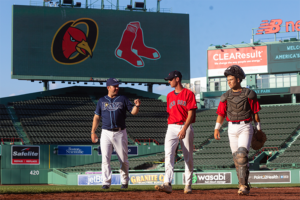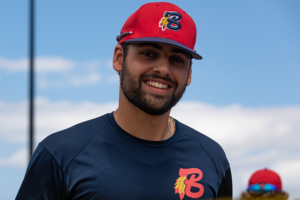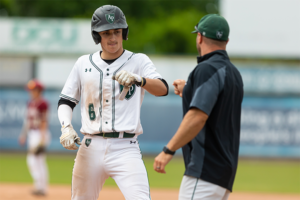
Brendan Akashian, a four-year player at Holy Cross who played three seasons of pro ball, founded Lowell, Mass., based Boomer Baseball in 2020.
One of the most challenging periods in the travel baseball calendar is right around the corner. Travel baseball tryouts are being held for many programs across all age groups. From a director’s perspective, it is a busy time of the year as it requires a delicate balance of roster building with the creation of a successful experience for players, coaches and families.
These coming weeks can pose a lot of questions for players and parents in regard to player placement. Here is my best advice for tryouts to both parents and players.
For parents
-
- If you are trying out for a specific travel baseball team, know who the head coach will be. In my opinion, it’s a red flag when a player agrees to play for a travel team that hasn’t named a coach for his/her particular age level. That’s the equivalent of accepting a job, but not knowing your boss. The head coach can make a massive difference in the experience, and you need to know who that is before agreeing to be on a travel team.
- Everyone’s financial situation is different, but every parent should try to quantify the value received from the program offering. There are some awesome organizations out there that charge $3,500 for a travel baseball season and offer a program that provides a ton of value for the cost. The inverse is also true. There are plenty of organizations that charge $3,500, but it’s hard to quantify what you are getting at that price point. I urge parents to put a dollar figure on what you are getting, and ask the following questions that can dictate the value:
- Do I get private lessons as part of my tuition?
- How many practices are there from winter through the end of year?
- Is the uniform kit included in the cost?
- Are tournament costs included? If so, how many?
- How many games will you play on a normal weekend? How about over the course of the season?
- When a program director takes a player, he is taking on a lot more than just one individual. He is taking on parents who factor into the equation just as much as the player. Every program director wants teams to perform at a high level; they also want to foster an environment of clear communication so that they’re not fielding calls from disgruntled parents every Monday morning.
The tryout isn’t just designed to see how good your son or daughter is, but it’s also gauging the fit for the family and player.



